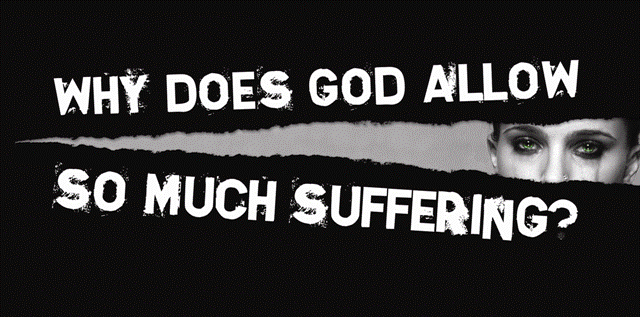Where is God in Suffering?
by Brendan Purcell
(Veritas, €12.99)
God You’re Breaking
My Heart: What is
God’s Response to Suffering & Evil
by Brian Grogan SJ
(Messenger Publications, €9.99)
The dreadful event in France, in the church at Saint-Étienne-du-Rouvray, not to speak of the other horrors in recent times, reveal only too starkly the evil that stalks the world, inflicting suffering and death in so many ways. At these times many give witness to their faith; others ask where God is in the world that such things happen.
These two books address, in their different ways, this terrible mystery, the theme of suffering and evil in the world. One is by a distinguished Irish philosopher; the other by an authority of Ignatian Spirituality. In these books the authors, Brendan Purcell and Brian Grogan, attempt to provide not perhaps a complete answer to the problem of evil, but to make some approaches to the matter available to readers from their respective positions.
Philosopher
Brendan Purcell, after a career in UCD, is now Adjunct Professor of Philosophy in Notre Dame University in Sydney. Brain Grogan is Emeritus Associate Professor of Spirituality at the Milltown Institute.
Brendan Purcell’s book is, for the work of a philosopher, a very personal one, which draws on his own experiences and those of individuals he has known. His aim, he says, is to counter such fashionable writers as Peter Singer (of animal liberation fame) and Stephen Fry (whom many would consider a rather lightweight person for his all his physical bulk). But these commentators are only the latest in a long line of proponents of a view that the universe is godless and human beings effectively alone in it.
But it not their views that are central to what he says, but the experiences of some seven figures, some from life, some, like Job, literary creations. The purpose of pain is illustrated by the stoical receptiveness of these individuals, whose sufferings are given weight, indeed majesty, by their witness.
Brian Grogan adopts a different approach, derived from his long years of spiritual leadership and counselling. The suffering of individuals, so often and easily seen as God punishing people, has to be separated from the notion of individuals acting with evil intent. Yet so often those who do what others see as evil acts do so to achieve what they see as a common good.
Purpose
These books are complementary. One cannot say one is better than the other, for each serves a different purpose. Brendan Purcell brings his readers into contact with some great souls, and shares the witness of their lives. Brian Grogan, however, may provide the doubt ridden individuals with reassuring ideas, drawn from the integrity of the Christian message, the Christian vision of the world in its completeness, which they may find more relevant to their own immediate lives in contrast with the extreme examples which Brendan Purcell describes and shares.
Beset as we seem to be not only by the nature of our own lives, but by the news of other disasters that seem to affect the world in general, these books provide current versions of the answers which faith has shared with the world.
That the world is still the victim of evil arises all too often from the broken nature of so many persons. To encounter both evil and suffering perhaps we all need to try in our lives to make the world a more complete place for others, while they in turn try to make it more complete for us.
For many then, answers in these books may not be complete answers, but for a great many they will bring both understanding and comfort. Both are worthy works of men of great experiences and insight. But the general readers might find it more appropriate to begin with Fr Grogan’s more general book before moving on to Prof. Purcell’s more particular one.


 Peter Costello
Peter Costello
